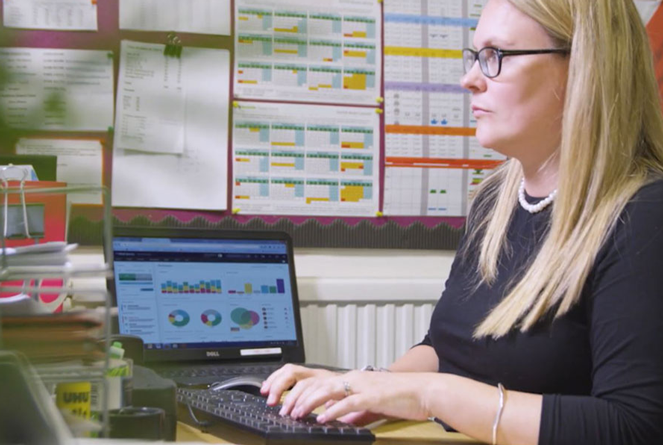Appraisals may be difficult to fit into the hectic schedules of teachers, but they’re a vital part of tracking and encouraging their progression. Indeed, it’s just as important as tracking the progression of students.
Often appraisals come with lots of paperwork and stress for teachers, and the introduction of new legislation by the Department of Education has only added to the burden. However, appraisals done right are well worth the effort, as they ensure teachers gain and maintain all the necessary skills they need to carry out their jobs effectively.
This blog takes a look at all the requirements around modern teacher appraisals and how you can make them as compliant, efficient and constructive as possible.

What are teacher appraisals?
Teacher appraisals are an important developmental process, normally carried out by a line manager once a year. They are designed to make sure that teachers are fully equipped with the right skills to deliver good-quality teaching and good student outcomes. They should be thorough, supportive, and enable teachers to pursue further professional development and improvement
How are teacher appraisals carried out?
The Department for Education has now published a model appraisal policy, which gives schools and line managers guidance around appraisal best practice. In particular, it focuses on three key areas of teacher performance to assess:
- Observation of classroom practice and other responsibilities: this can help identify particular strengths, and other areas where more development may be helpful. This should be approached in a supportive manner that doesn’t add to teachers’ workload
- Feedback: constructive feedback for teachers on their overall performance through the year should be given as soon as possible post-observation
- Evidence: a proportionate level of evidence (while still minimising workload) should be gathered to help with appraisal and with pay decisions.
What makes a good teacher appraisal?
Many teachers find the appraisal process stressful, in no small part because they feel that any problems or negative feelings will be amplified and will knock their confidence. Therefore, the best way to approach appraisals is with positivity, from the outset and throughout:
- Be constructive: rather than focus on things that are going wrong, try and work with the teacher involved and come up with solid plans on how to resolve issues and move forward
- Avoid negatives: don’t dwell too much on problems that have arisen, and give teachers the chance to reflect on their own progress and take ownership of any issues, so that they can feel motivated to improve
- Create a rewarding process: give teachers something to aim for, and some tangible targets for development and progress over the following year
- Emphasise development opportunities: help teachers work towards the longer-term, and set out the career goals they can reach with continued progress

What is the legislation?
New DfE legislation means all teacher appraisals must be accompanied by a written report that includes:
- Performance assessment against objectives and standards
- Assessment of training and development needs
- Recommendation on pay progression (if relevant)
While the DfE also recommends that ‘the process of teacher appraisal does not become overly burdensome’, the wider scope of appraisals will naturally lead to an even bigger admin burden related to appraisals. Digital appraisals, however, can make the whole process much more efficient.
How do digital teacher appraisals work?
Digital appraisals allow school leaders and teachers to contribute to the process through an online platform in their own time. This allows them to better fit appraisals around their already busy schedules.
A digital platform also means that wider professional development and class observation data can be integrated, so that all elements of teacher quality insurance sit together in one place. The removal of time-consuming physical paperwork, and the ability to track data to chart progress, makes the whole appraisal process more detailed, easier to conduct and more helpful in supporting teacher improvement.
What are the benefits of going digital?
- Clearer ‘paper trail’: with a full virtual record of appraisal contact and information, the appraisal process benefits from greater transparency, and better accessibility of historical information
- Faster, greener appraisals: the self-service, paper-free nature of digital appraisals makes them much quicker to complete, and vastly reduces the carbon footprint of the process
- Interconnected view of progress: appraisals can move away from being stand-alone processes and become an integrated part of continuous professional development throughout each school year
- Better oversight for school leaders: every teacher’s progress can easily be viewed by managers on an online platform, with reporting and suggested actions aiding decision-making around improving teacher development


/Primary%20school%20.jpg?width=2000&name=Primary%20school%20.jpg)








.png?width=940&height=788&name=Lingfield%20College%20Case%20Study%20(5).png)
-1.png?width=1000&height=833&name=National%20Association%20of%20Head%20Teachers%20(3)-1.png)
-3.png?width=1080&height=1080&name=Untitled%20design%20(10)-3.png)







